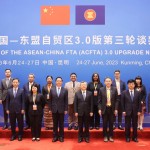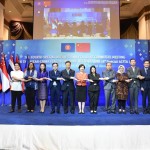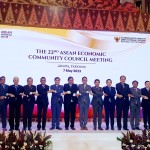Tổng số bài đăng 467.
On 29th November 2024, U.S. trade officials announced a new round of tariffs on solar panel imports from four ASEAN countries after American manufacturers complained that companies there are flooding the market with unfairly cheap goods.

It is the second of two preliminary decisions that President Joe Biden's Commerce Department is making this year in a trade case brought by Korea's Hanwha Qcells, Arizona-based First Solar Inc and several smaller producers seeking to protect billions of dollars in investments in U.S. solar manufacturing.
The group, the American Alliance for Solar Manufacturing Trade Committee, accused big Chinese solar panel makers with factories in Malaysia, Cambodia, Vietnam and Thailand of causing global prices to collapse by dumping products into the market.
According to a preliminary decision posted on the U.S. Commerce Department's website on Friday, the agency calculated dumping duties of between 21.31% and 271.2%, depending on the company, on solar cells from Cambodia, Malaysia, Thailand and Vietnam.
Jinko Solar received duties of 21.31% for products made in Malaysia and 56.51% for those produced in Vietnam.
China's Trina Solar received a dumping margin of 77.85% for products it makes in Thailand and 54.46% for those it produces in Vietnam.
In contrast, the Commerce Department did not lay out any dumping margin for Hanwha Qcells products made in Malaysia. In October, the department had calculated subsidy rate of 14.72% for the company.
The department's final determinations are set for April 18, 2025, with the International Trade Administration set to finalize its determinations the following June 2 and final orders expected June 9.
Most solar panels installed in the United States are made overseas, and some 80% of imports come from the four nations targeted in the Commerce Department probe.
The Biden administration this year raised the alarm over China's massive investment in factory capacity for clean energy goods. Biden's landmark climate change law, the Inflation Reduction Act, includes incentives for companies that produce clean energy equipment in the United States - a subsidy that has prompted a flurry of plans for new solar factories.
President-elect Donald Trump has called the Inflation Reduction Act too expensive, but also has said he plans to slap hefty tariffs on a range of sectors to protect American workers.
Source: Reuters












